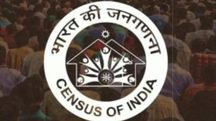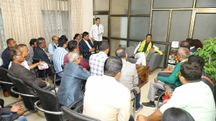ASI report says 'large Hindu temple existed before' Gyanvapi mosque
The Archaeological Survey of India (ASI) has released a report that has significant implications for the Gyanvapi mosque case.

The Archaeological Survey of India (ASI) has released a report that has significant implications for the Gyanvapi mosque case.
According to the findings, there was a "large Hindu temple" at the site before the mosque was constructed. This conclusion is based on evidence gathered during a scientific survey ordered by a district court in July 2023.
The ASI's survey uncovered 34 inscriptions on both existing and pre-existing structures, with 32 estampages taken. These inscriptions, found on stones from pre-existing Hindu temples, were repurposed during the construction or repair of the current mosque structure.
The western wall of the mosque, in particular, was identified as part of the destroyed temple, and efforts to erase symbols on the temple pillars were noted.
Also Read: Monkey enters into sanctum sanctorum of Ram Lalla temple, devotees' compare with Lord Hanuman
The Gyanvapi Mosque, located in Varanasi, dates back to 1669 CE and was built under Mughal Emperor Aurangzeb. It stands adjacent to the Kashi Vishwanath temple and features a blend of Mughal and Hindu architectural elements. The mosque has been at the center of a dispute over its religious significance and ownership, with local priests filing a petition in 1991 to worship within the complex, claiming it was originally part of the demolished Kashi Vishwanath temple.
In 2022, following a Supreme Court order, the 'wazukhana' area of the mosque was sealed after the discovery of what was claimed to be a 'Shivling'. This discovery has been contested, with the Muslim side referring to it as a fountain.
The ASI's survey was conducted to determine if the mosque was built over a pre-existing Hindu temple structure.
Advocate Vishnu Shankar Jain, representing the Hindu side, has stated that the ASI's findings are conclusive and indicate the presence of a substantial Hindu temple prior to the mosque's construction. The Varanasi district court has requested that the ASI report be made public, and copies have been provided to both sides involved in the dispute.
The controversy surrounding the Gyanvapi mosque and the alleged Shivling found on its premises continues to be a point of contention between the Hindu and Muslim communities. With the release of the ASI report, the case has taken a new turn, potentially impacting future legal decisions regarding the site.
Copyright©2025 Living Media India Limited. For reprint rights: Syndications Today









